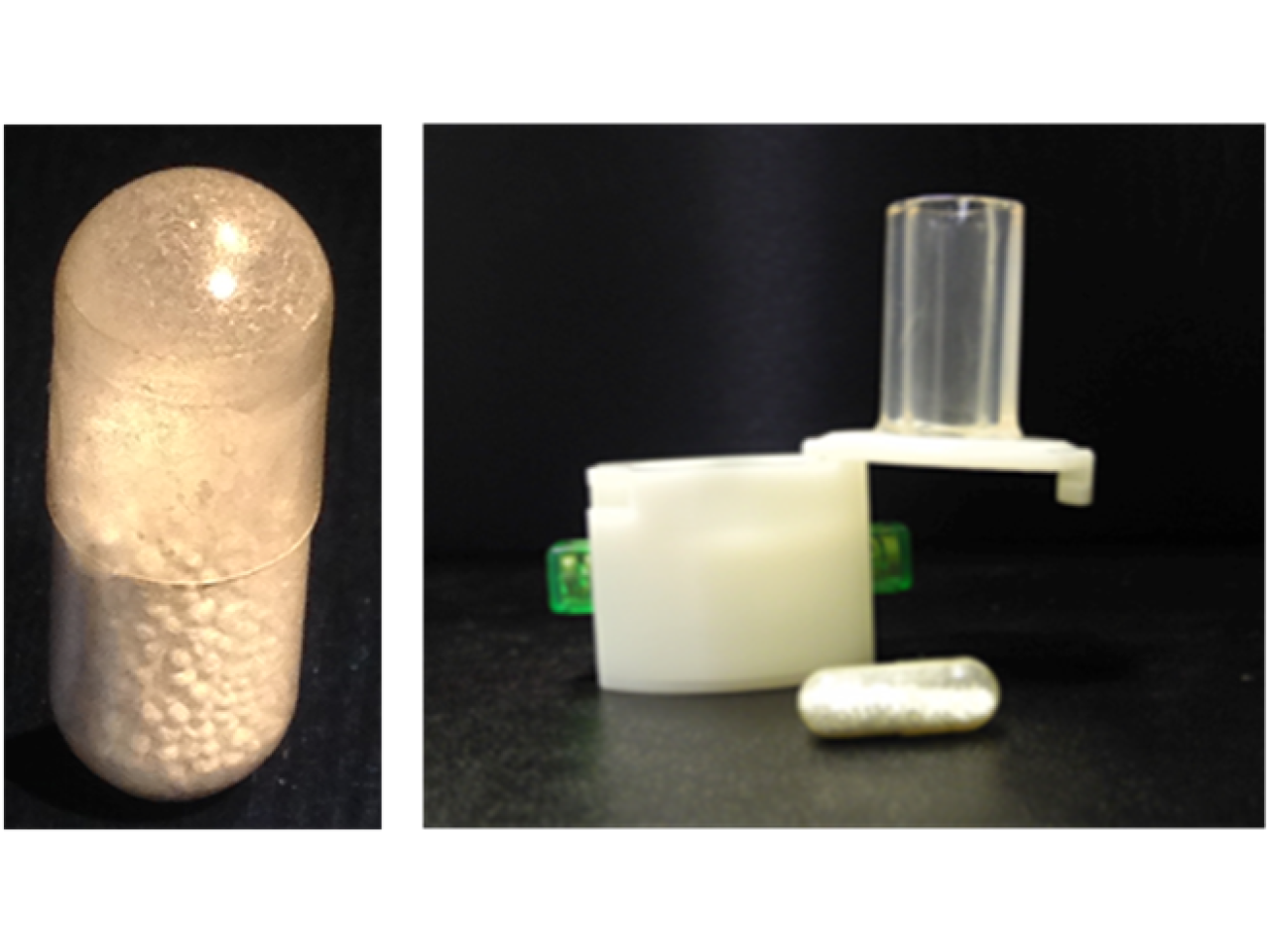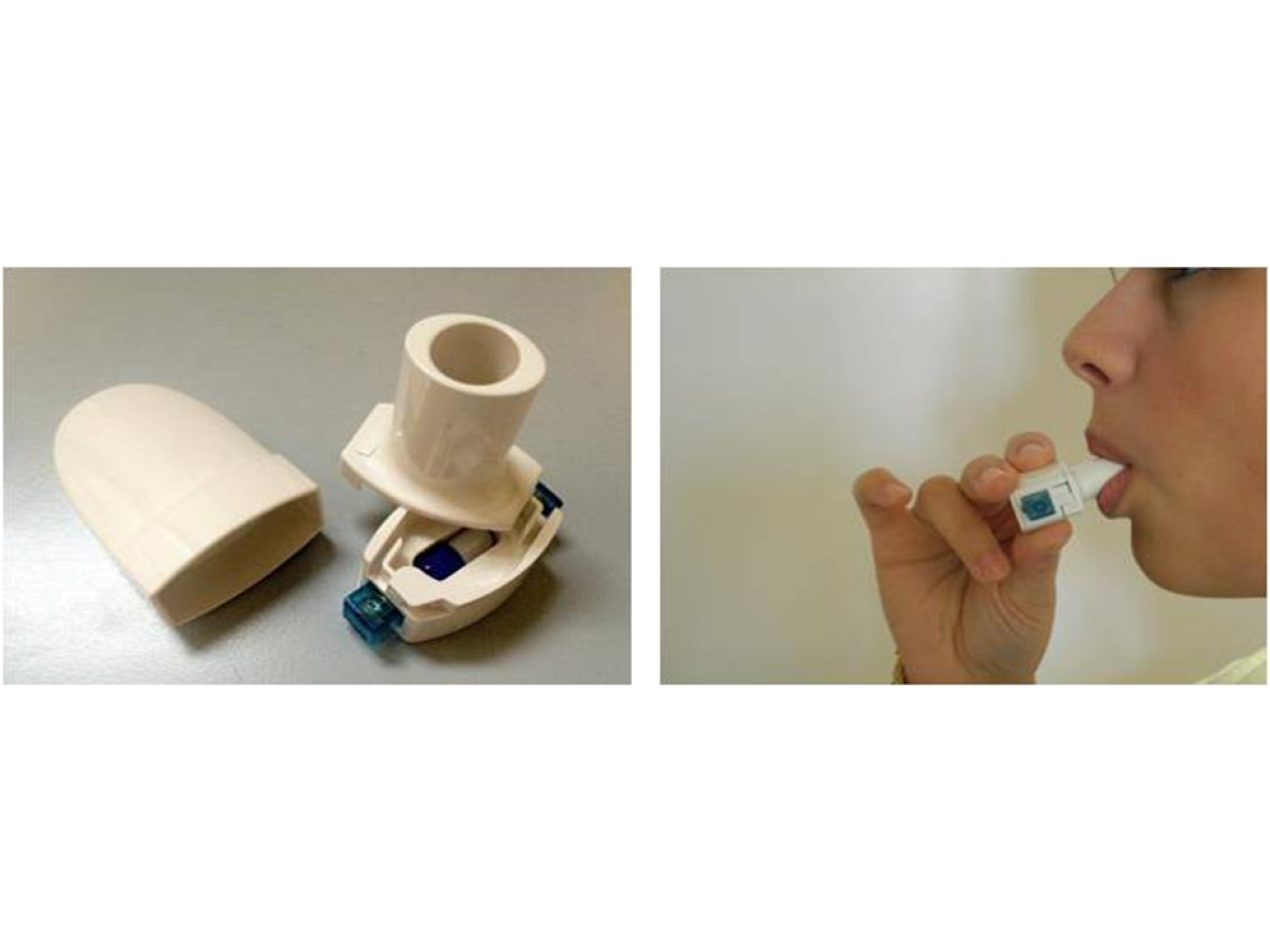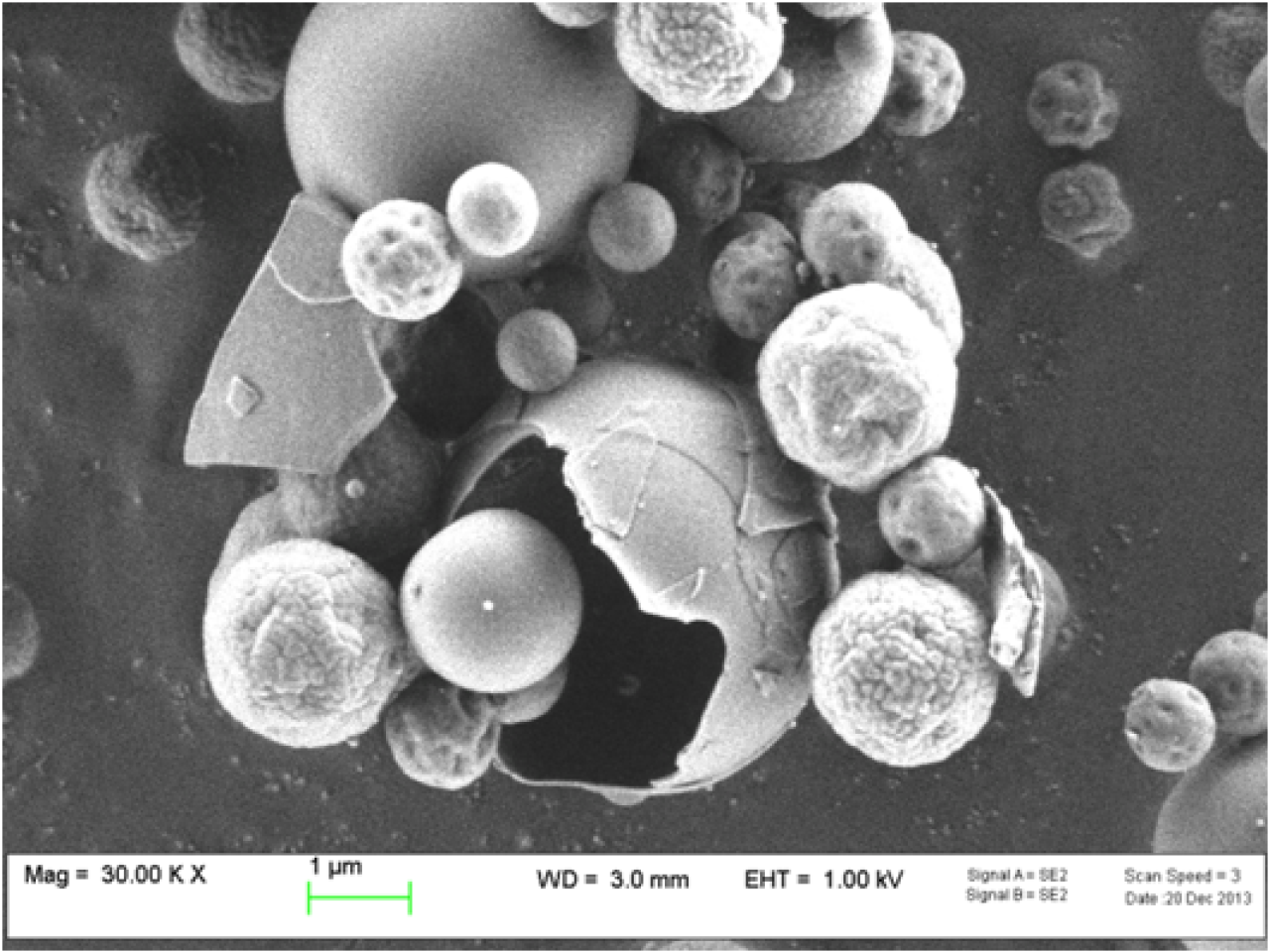The technology for the pulmonary administration of antibiotic drugs in the inhaled powder form is an alternative to administration by nebulization. Therespirable microparticles with high content of aminoglycoside antibiotic were prepared for spray drying of drug solutions and sodium stearate. The powders obtained are administered by inhalation using a portable device for dry powders.
 Capsule containing the microparticle of tobramycin and inhaler
Capsule containing the microparticle of tobramycin and inhaler
An inhalation powder facilitates the administration compared to nebulization which requires complex instruments, more time and care efforts. Dry powder inhalation technology involves a simple breath through handable devices which do not require electricity. The administration can be carried out everywhere with less drug than that administered via nebulization. The drug works where it is needed, without affecting healthy organs.
The respirable microparticles manufacturing technology is of interest for pharmaceutical industries that deals with the production of drugs by inhalation, both traditional and bio-technology, particularly antibiotics. The technology is a response to the need to release the antibiotic drugs to the pulmonary level of infection. The control of the amount of drug released is achieved thanks to the structure of microparticles and the operation of inhalation device used for dry powders.
 Dry powder inhaler of tobramycin and inhalation technique
Dry powder inhaler of tobramycin and inhalation technique
Innovation in the treatment of lung infections: antibiotic powders for dry powder inhalers
Bacterial and viral lung infections are treated systemically with drug doses that to reach the site of action in the appropriate concentration expose the healthy part of the body to side effects. Patients with cystic fibrosis often develop a chronic infection with Pseudomonas aeruginosa which requires antibiotic treatment cycles of 28 days with bi-daily dosing. The quality of life of these patients is highly dependent on antibiotic therapy for which alternative administrations are of great interest in order to improve patient compliance. The antibiotic for inhalation in dry powder was formulated as to be highly respirable with high active ingredient content. These features allowed to reduce the amount of drug to be inhaled through the use of a device that contains the half daily dose in a single container. Moreover, the time of inhalation is less than two minutes, compared to 15 minutes of administration by nebulization.
PlumeStars, startup at University of Parma
The technology is protected by patent "A drug powder for inhalation administration and a process thereof" PCT / EP2008 / 059, owner University of Parma. Talks are underway with pharmaceutical companies considering the orphan designation that the product amikacin has already obtained either from EMA that by FDA for application in the treatment of Pseudomonas aeruginosa in cystic fibrosis.
 SEM pictures of tobramicin microparticles
SEM pictures of tobramicin microparticles

